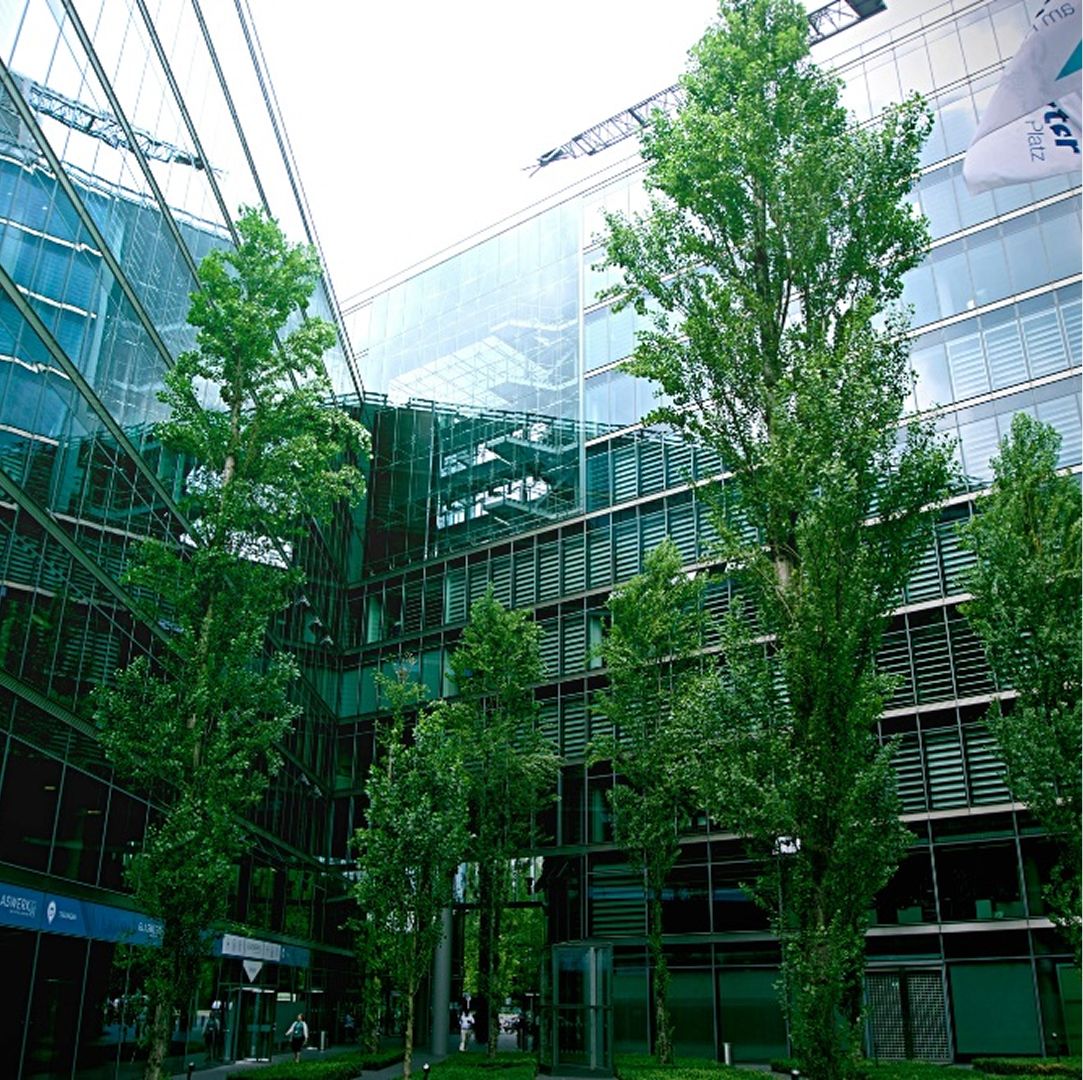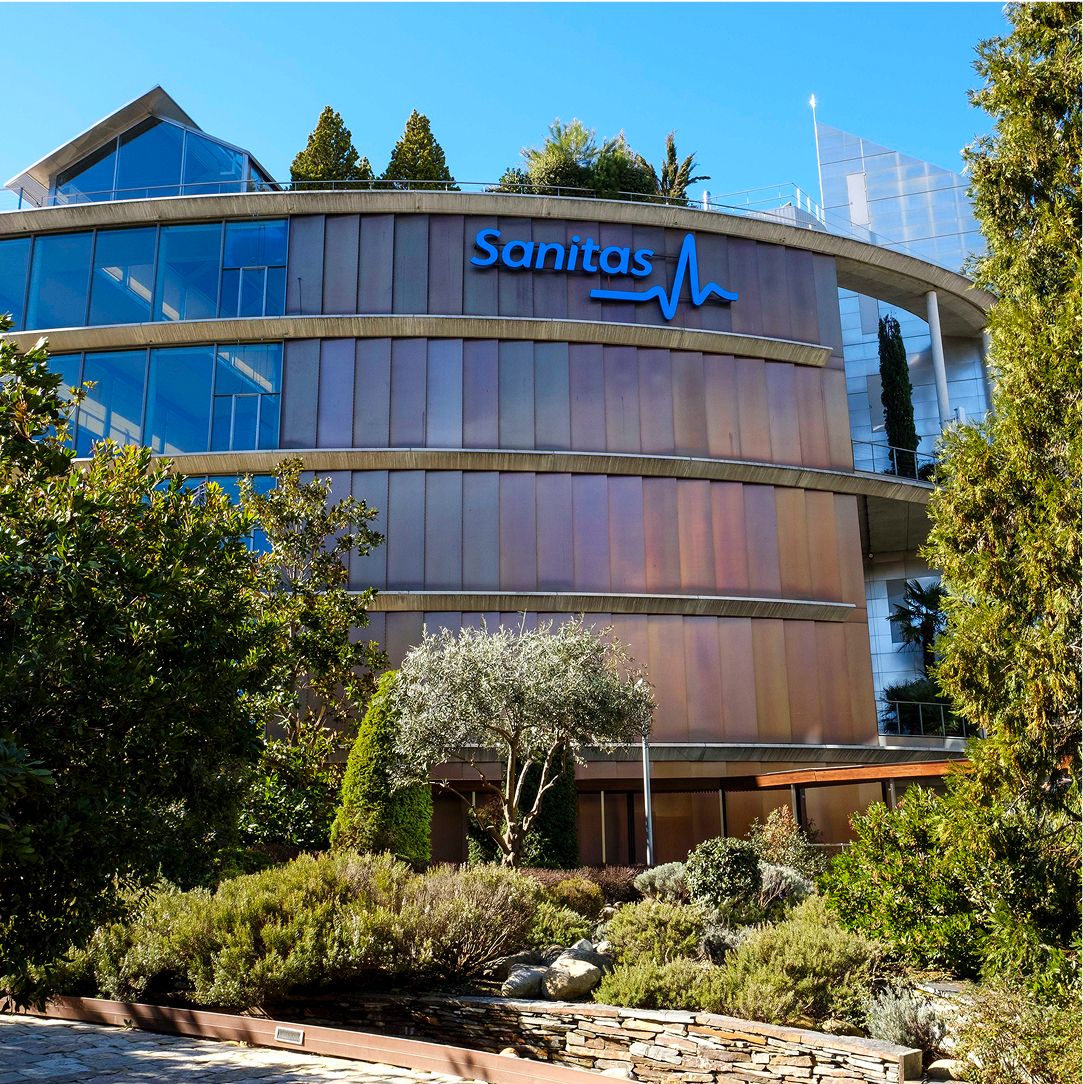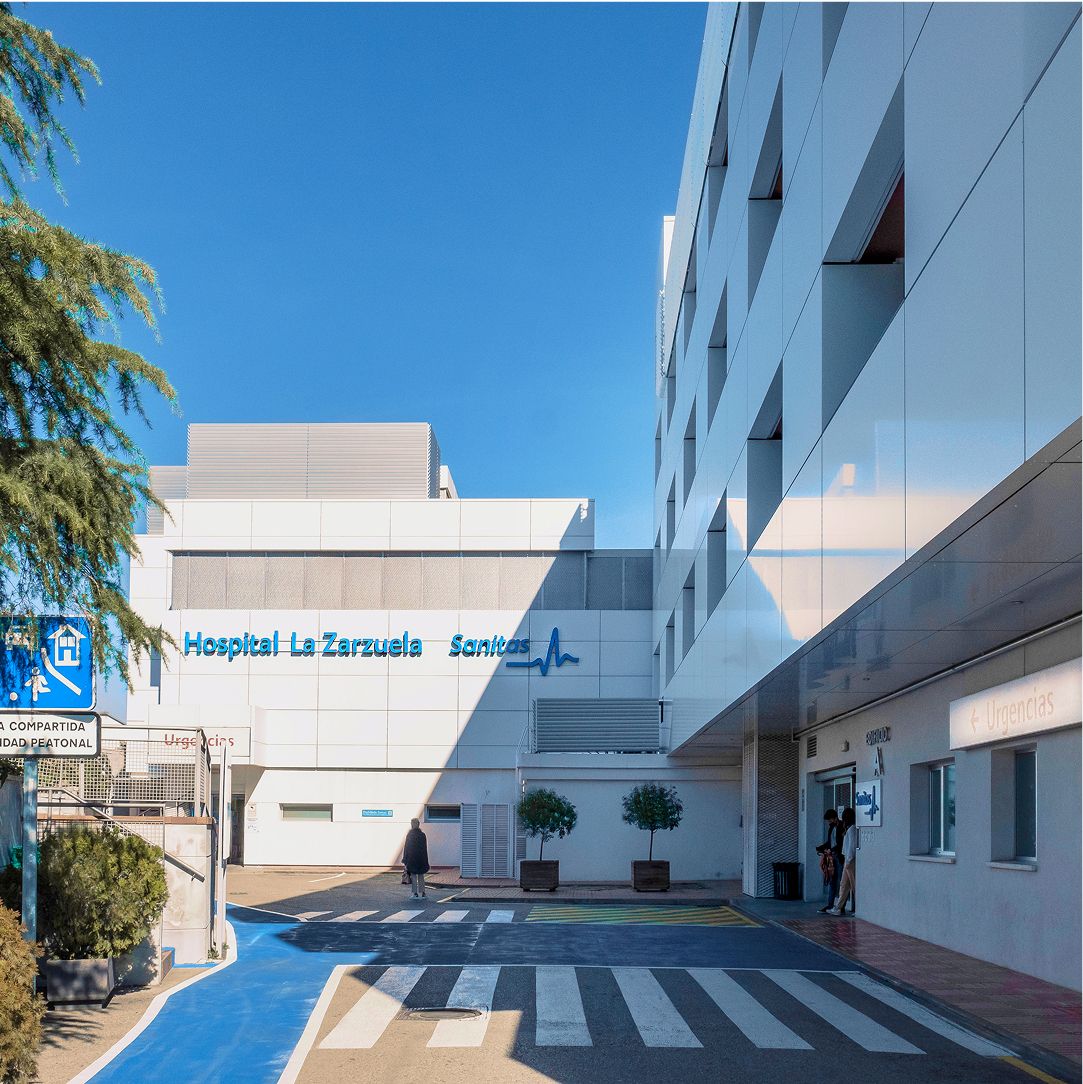One Health
Environment
ONE HEALTH EMOTION
PROTECTING THE PLANET’S HEALTH TO SAFEGUARD PEOPLE’S HEALTH
Transforming urban spaces into healthier, more sustainable places that improve citizens’ quality of life. This determination has led Sanitas to develop initiatives focused on environmental protection, the regeneration of green spaces, and the restoration of biodiversity. These initiatives also aim to promote the adoption of healthy and sustainable lifestyles that help curb the effects of climate change and ensure global health on a healthy planet.
GRI 3-3, 203-2
Cities that inspire health
Urban spaces must adapt to the new concerns and lifestyles of a growing and increasingly conscious population, which demands healthy cities and places to connect with nature. More sustainable and healthier cities that improve the well-being and quality of life of their citizens.

Healthy Cities
Aware of the interconnectedness between people’s health, their lifestyle, and the environment they live in, the Healthy Cities initiative has been promoting healthier and more sustainable habits and environments since 2015.
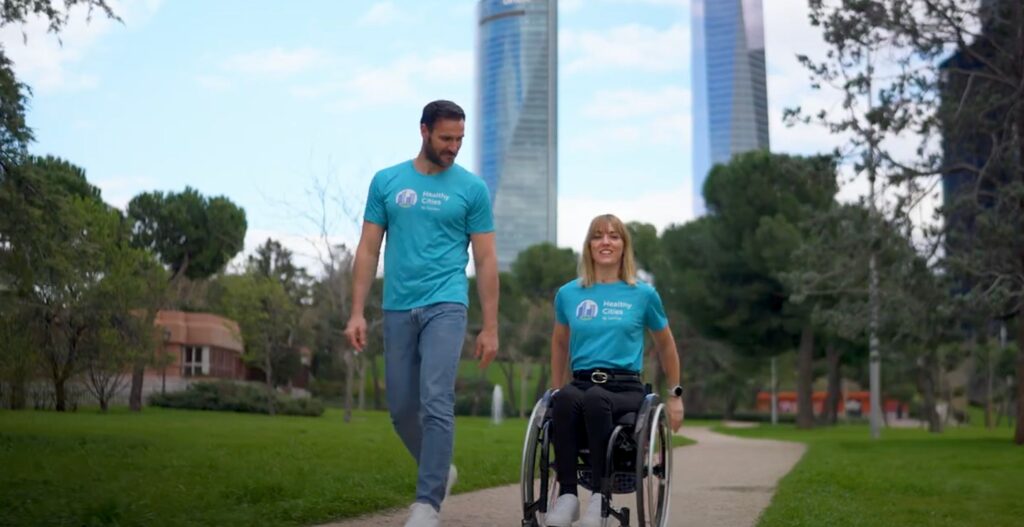
Healthy Cities 2024: key figures
9th
+28,000
230
+28,000
9,610
+6.4 M
40
+500,000
Healthy Cities app
Once again, Sanitas made a free app available to all adults in Spain, enabling them to track their daily steps and monitor their progress against the 6,000-step daily target during May and June. The app also offers general information about the initiative, helpful articles, and practical tips and recommendations for building healthy habits.
Our goal: to cultivate health
TOGETHER
FOR CHANGE
The power of collaboration helps us grow stronger and reach further. For the ninth consecutive year, businesses, employees, and citizens have joined forces to make the Healthy Cities Challenge a transformative movement.
GRI 3-3, 413-1


A collective movement
People, companies and institutions make Healthy Cities grow year after year. The programme is supported by the Spanish Heart Foundation, the Spanish Olympic Committee, the Spanish Paralympic Committee, Real Madrid Football Club and the Norman Foster Foundation. The involvement of public and private organisations strengthens the programme’s reach and impact, reinforcing the drive to create a better world.
-
Norman Foster Foundation
The Norman Foster Foundation and Sanitas are working together to design buildings and urban spaces that have a positive impact on people’s lives and health.
Their joint initiatives include collaborations with architects and urban designers to raise awareness about the importance of making health a central focus in city planning —particularly through the “Healthy Cities Public Debates”. Additionally, Bupa, Sanitas’ parent company, supports the Norman Foster Institute on Sustainable Cities to promote knowledge-sharing on how urban design and sustainable planning affect human health.
-
Sanitas Health and Environment Chair at the University of Navarra
In 2024, the Sanitas Health and Environment Chair at the University of Navarra released the findings of its report on “The impact of urban environments on human health”. The report compiles scientific literature examining how urban factors affect morbidity and mortality among the Spanish population and highlights the importance of urban regeneration.
The analysis demonstrates the influence of air quality, temperature, urban heat islands, green and blue spaces, and mobility systems on health. The Chair has also developed a proprietary index —the Harmony Index— to integrate these variables, measure their impact and identify solutions.
Ongoing research is exploring ways to enhance the comfort of patients and visitors at Sanitas hospitals by creating a digital twin of one of our medical centres. This model analyses variables such as temperature, humidity and air quality, and assesses their impact on health.
Healthy
Cities
It is expected that by 20250 seven in ten people will live in cities. This high and growing urban population requires a collective response to deliver more green, healthy spaces for everyone. At Sanitas, we are committed to helping create more sustainable cities that improve the quality of life for their residents through three main types of regeneration projects: urban, peri-urban and large natural reserves.


Urban forests
The Madrid Metropolitan Forest
A vast green belt designed to encircle the city of Madrid.
For four consecutive years, Sanitas has contributed to this ambitious initiative through tree donations, maintenance work, watering services and environmental monitoring.
The Forest of the Zaragozanos
These new natural spaces will have a direct impact on the health and wellbeing of residents in Zaragoza and the surrounding area. For the third consecutive year, Sanitas has reaffirmed its commitment to the Forest of the Zaragozanos, an initiative led by the City Council of Zaragoza and ECODES. In 2024, Sanitas will donate 3,500 seedlings to help reforest 3.5 hectares across two sites: Peñaflor Forest and Campos de Canal.
Tree-lined walks in Malaga
For the second year, Sanitas is donating funds to renaturalise the city of Málaga, where the phenomenon known as heat island is already being experienced. Therefore, the trees donated to the city are designed to create shaded areas.
Valencia European Green Capital 2024
Sanitas has promoted Valencia’s European Green Capital status with the donation of nearly 200 trees that replant and provide shade on the city’s streets.
Urban biodiversity Awards
Awards to Córdoba, Melilla and Los Llanos de Aridane (La Palma)
In 2024, the first call for “Healthy Cities Spaces” was launched. These awards encourage Spanish city councils to submit projects to regenerate or green their municipalities and promote biodiversity and environmental health. The aim is to present new projects that complement the urban regeneration projects on which Sanitas has collaborated in recent years. Among all the applications received, three were successful and earned donations that allowed them to carry out various urban plantings. Specifically, the trees donated by Sanitas helped restore Cruz Conde Park in Córdoba, which was affected by several weather events; in Melilla, they supported the transformation of a landfill into a green area connecting two areas of the city; and in Llanos de Aridane (La Palma), trees restored several areas affected by the Tajogaite volcano eruption in 2021.
Peri-urban environments
Outside city centres, Sanitas is supporting the restoration of forests and ecosystems under threat. Since 2021, the Healthy Cities programme has contributed to various forest restoration projects in partnership with WWF Spain. Sanitas continues to work with Bosques Sostenibles on reforestation initiatives to regenerate damaged natural areas. In 2024, our collaboration with these organisations remains strong, with multiple active initiatives throughout the year.
01.
Ecosystem restoration
Southeast Regional Park, Madrid
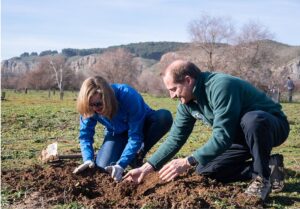
02.
Wetland restoration in Las Islillas (Mejorada del Campo)

03.
Recovery in Cortes de Pallás (Valencia)
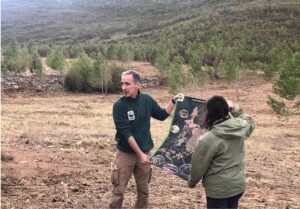
04.
Reforestation in Ávila

05.
Forest restoration in Asturias

06.
Supporting the Protected natural areas network of Barcelona

Major natural reserves
For the third consecutive year, Sanitas has continued its partnership with the Jane Goodall Institute on its Reforestation and Agroforestry Sustainability Programme in Senegal’s Kédougou region. This initiative helps to preserve the habitat of Senegal’s critically endangered chimpanzees by protecting biodiversity, increasing forest cover, mitigating climate change and supporting local communities to achieve greater food sovereignty and environmental resilience. In 2024, around 3,000 trees were planted in one of the country’s poorest areas, where communities rely on subsistence agriculture.
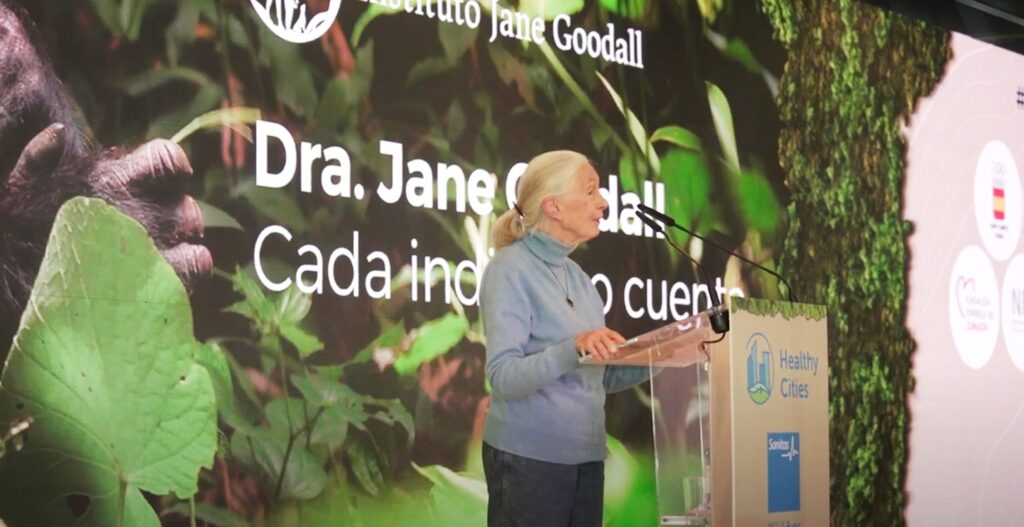
Our commitment to environmental health remains one of our core pillars. This year, we took a step further by incorporating more inclusive products to help advance the SDGs. We always work with the goal of making cities and spaces healthier and better adapted to the needs of everyone.
Yolanda Erburu
Chief Communications and Sustainability, Sanitas and Bupa Europe & Latin America, and Managing Director of Fundación Sanitas
Zero emission operations
GRI 302-4
Sanitas has set itself the goal of becoming a net zero emissions company by 2040, thus contributing to limiting the global temperature rise to well below 1.5°C. This is a determined decarbonisation strategy for its direct and indirect operations to reduce emissions derived from its activity, following the scientific recommendations of the Science Based Target Initiative (SBTi), which it joined through its parent company, Bupa, in 2021. This is a daily commitment to curbing climate change and its consequences for the health of the planet and people.
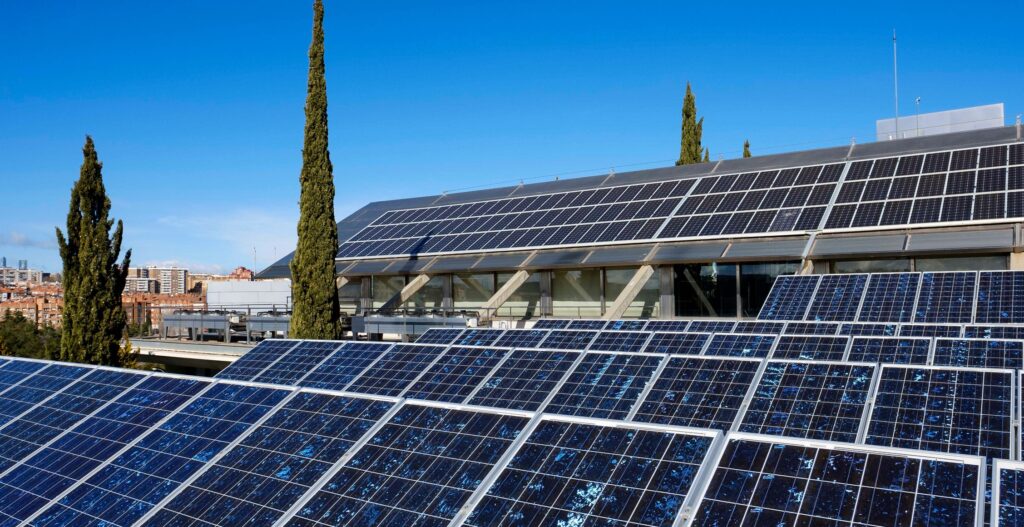
ENVIRONMENT:
ON THE PATH
TO DECARBONISATION
GRI 3-3
Measures to improve energy efficiency, process optimisation and the use of renewable energy help to minimise the environmental impact of our medical centres, clinics, care homes and offices. Thanks to this strategy, we have achieved a 28.5% reduction in direct CO₂ emissions (Scope 1) compared to 2019, resulting from lower consumption of natural gas, LPG, diesel, refrigerants, anaesthetic gases, and our own vehicle fleet. Indirect emissions (Scope 2) remain at zero, as all our facilities use 100% renewable electricity.


Emissions by scope
GRI 302-4, 305-1, 305-2, 305-3
In 2024, Sanitas sourced all of its electricity from renewable sources, once again achieving zero Scope 2 emissions.
Reduction of emissions
01.
Reduction of direct emissions
GRI 302-4, 305-1
02.
Reduction of indirect emissions
GRI 302-4, 305-2, 305-3
CLIMATE-SMART
BUILDINGS
Decarbonisation as an investment
In 2024, Sanitas invested €2.5 million in decarbonisation initiatives. These included energy efficiency projects focused on using renewable and low-carbon energy sources, as well as optimising processes to improve the efficiency of our medical centres, dental clinics, care homes, and corporate offices. These initiatives are essential pillars of our firm commitment to achieving net zero.

Centres at the forefront of sustainability
-
Projects approved in 2023 and completed in 2024 include
- Implementation of smart management systems (BMS) to control and automate energy consumption at the Sanitas La Zarzuela and Sanitas La Moraleja university hospitals, six senior residences (Les Corts, La Moraleja, Luz de Estrella, Las Rozas, El Viso, and El Mirador), and dental clinics. The Sanitas headquarters have also been renovated.
- Expansion of photovoltaic generation with new panels at the Sanitas La Zarzuela and Sanitas Virgen del Mar hospitals. Thermodynamic panels have been installed at the Valladolid nursing home, reducing the demand for for propane consumption for domestic hot water by 100%.
- Recommissioning or fine-tuning of all the building’s energy production systems.
- New sustainable anesthesia equipment at Sanitas La Moraleja University Hospital
- Low-consumption sanitary appliances for water savings in nursing homes.
-
Some of the projects started in 2024 that will be completed during 2025
- Improvements to the insulation of the Sanitas La Moraleja University Hospital envelope by replacing windows.
- New, more efficient boilers for producing domestic hot water at the Sanitas La Moraleja, Sanitas La Zarzuela, and Sanitas Virgen del Mar university hospitals will reduce gas consumption in the summer by becoming independent of the heating boilers.
-
Landmark actions that place us at the forefront of sustainability
At Sanitas, we put technology at the service of a cleaner future. This has enabled us to complete landmark projects that place us at the forefront of sustainability.
- Our first digital hospital. Blua Sanitas Valdebebas Hospital will open its doors in Madrid in 2025 as the home of the first digital hospital. With sustainability as its hallmark, the building has been designed to be efficient, low-emission, with 100% renewable electricity consumption and a healthcare service with minimal environmental impact. The radiodiagnostic service reduces the use of energy, water, and helium, controls the population’s dose of ionising radiation, and offers recycling and completely virtual access to testing.
- Eco-active spaces. The application of innovative technologies to the facades of some centers allows for CO2 capture and contributes to the creation of eco-active spaces.
- Integrated green infrastructure. Green roofs and gardens enhance air quality and support biodiversity wherever possible, as seen at the Sanitas La Moraleja University Hospital and the Blua Sanitas Valdebebas Hospital.
-
Other projects
Investment projects have enabled significant upgrades at Sanitas La Moraleja University Hospital, including integrating the Trend and BMS systems for climate control, renovating hot water and return systems, optimising anaesthesia gas systems, upgrading solar control films and boilers, and installing more energy-efficient window and door fittings.
At Hospital CIMA, a charging point for electric scooters has been installed and digital initiatives have reduced paper usage.
At Sanitas La Zarzuela University Hospital, green spaces have been improved and solar panels have been installed on the car park roof for self-consumption. These consist of 704 LONGI Mono 555Wp modules. The hospital has also replaced its boiler and upgraded its air conditioning control system to improve automation and energy efficiency.
In several senior residences, heating, kitchens, and laundry facilities were electrified, shifting gas consumption to electricity. Work is also underway to replace chillers at the El Viso and Getafe (Madrid) centers, with an expected saving of 140 tons of CO₂ by 2025.
Regarding the use of renewable energy, it is worth highlighting that, along with water-saving systems in senior centers, the commitment to photovoltaic energy production has generated 1.15 GWh, equivalent to the electricity consumption of three average residential centers.
Certified sustainability
Transparency and accountability are essential pillars of Sanitas’ green transition. To this end, we have obtained several certifications that guarantee the reliability of our sustainability practices and results.
SUSTAINABLE HEALTHCARE DELIVERY
GRI 302-4
Sanitas is committed to innovation and advanced technologies, as well as environmentally responsible practices, to deliver low-emission healthcare and support a sustainable future.


-
Sustainable anaesthesia
In 2024, Sanitas avoided 328 tonnes of CO₂ emissions from anaesthetic gases compared to 2023 — a 44.4% reduction in emissions from this source. This was partly due to Hospital de Manises being removed from our hospital network, as well as the implementation of measures from the Sustainable Anaesthesia Plan. These measures include the elimination of nitrous oxide and desflurane, as well as the acquisition of more efficient equipment that allows the use of metabolic flow techniques. The removal of nitrous oxide alone has led to a total reduction of 1,230 tonnes of CO₂ since the plan was implemented in 2022.
-
Digital transformation
Digital transformation is the key to streamlining care for people and protecting the health of the planet. Video consultations, online report downloads, digital radiology, and the use of intraoral scanners in dental clinics are some of the practices that avoid travel, reduce the consumption of raw materials and waste generation, and save emissions and resources.
The Mi Sanitas app helps raise awareness about these measures. It features a calculator that allows patients to measure their carbon footprint and net emissions when they use digital services and avoid traveling for an in-person appointment or medical report collection.
As part of its digital transformation strategy, Sanitas expanded its digital services portfolio in 2024. These efforts prevented the emission of 11,110.7 tonnes of CO₂ and the production of 150.6 tonnes of waste. Key measures included:
- Reducing travel and emissions by offering video consultations and online report downloads.
- Lowering raw material use and waste generation via intraoral scanners in dental clinics.
- Waste savings from digital radiology in hospitals and digital scanning in dental care.
- Reducing paper consumption and eliminating printed records by digitising administrative processes.
-
Digitalisation as a decarbonisation tool
The digitalisation of services and products is proving to be a powerful ally in addressing climate change and its impact on people’s health. Sanitas has rolled out sustainable digital services across all business units:
Sanitas Seguros
Digital signing of policies, beneficiary additions and product updates eliminates the need for paper, printing and physical filing. New corporate contracts are now fully processed online, eliminating the need for physical documentation. In 2024 alone, 10,444 tonnes of CO₂ were avoided through digital consultations and medical report downloads.
Sanitas Hospitales
The use of CDs and other physical media in radiology is now a thing of the past at Sanitas hospitals thanks to the use of a digital platform with cloud technology that allows patients to access a copy of their images whenever they need them without having to travel. Thus, the digitalization of radiological tests and other hospital services has saved up to 81.6 tons of raw materials and plastics. It has also avoided the emission of 439 tons of CO₂ due to patient travel to collect them.
Sanitas Dental
Sanitas dental clinics began their journey toward digitalisation in 2018, with digital history taking and informed consent, as well as budgeting and insurance registration. Along with video consultations, Sanitas has enhanced its intraoral scanner, which offers precision and efficiency, faster impressions, and convenience. It significantly reduces consumables associated with traditional impressions, such as plastic trays, alginate powder, and PVS materials, as well as the need for patient travel to adjust or repeat impressions.
In total, thanks to digitalisation, Sanitas dental clinics avoid the emission of 227.7 tons of CO₂ and the use of 68.8 tons of paper each year.
Sanitas Mayores
Admissions to care homes are now signed digitally. In addition to saving the use of more than 208 kilograms of paper, the process has improved the experience for families through greater flexibility. Video consultations with doctors and specialists also reduce the carbon footprint by eliminating the need for travel.
Tracking our carbon footprint
Our environmental footprint reduction strategy also incorporates efficient water use, circular economy practices and responsible waste reduction and management. This is a collective mission shared with employees and partners alike.
Water footprint
GRI 3-3, 303-1, 303-5
Our clinics are equipped with sensor-operated taps and atomising filters to help reduce our water footprint. These systems enable more efficient and responsible consumption, helping us to protect water, which is an increasingly scarce and valuable resource.
Circular economy
GRI 3-3, 306-3
The three essential principles of the circular economy —reduce, reuse and recycle— form the foundation of Sanitas’ responsible and conscious approach to resource use and waste management.
Zero waste
Sanitas’ headquarters in Madrid holds AENOR’s Zero Waste certificate, confirming that over 90% of the site’s waste is reused or recycled. In 2024, our hospitals and healthcare centres also obtained the Towards Zero Waste certification.
Sustainable mobility
Sanitas’ sustainable mobility plan aims to reduce the environmental impact of employees’ daily commutes significantly.


